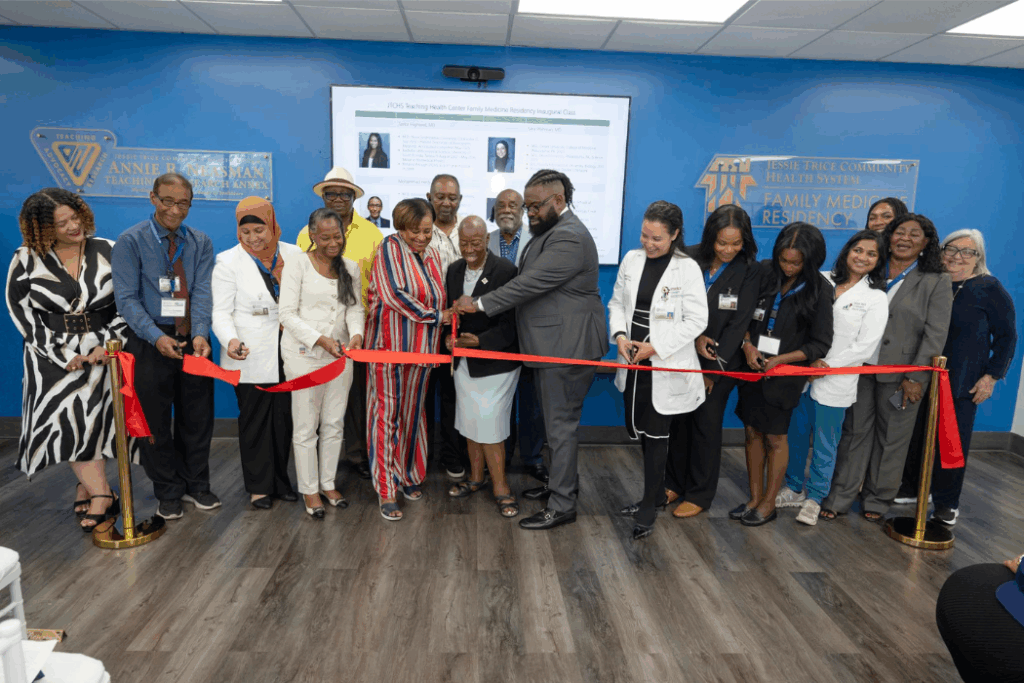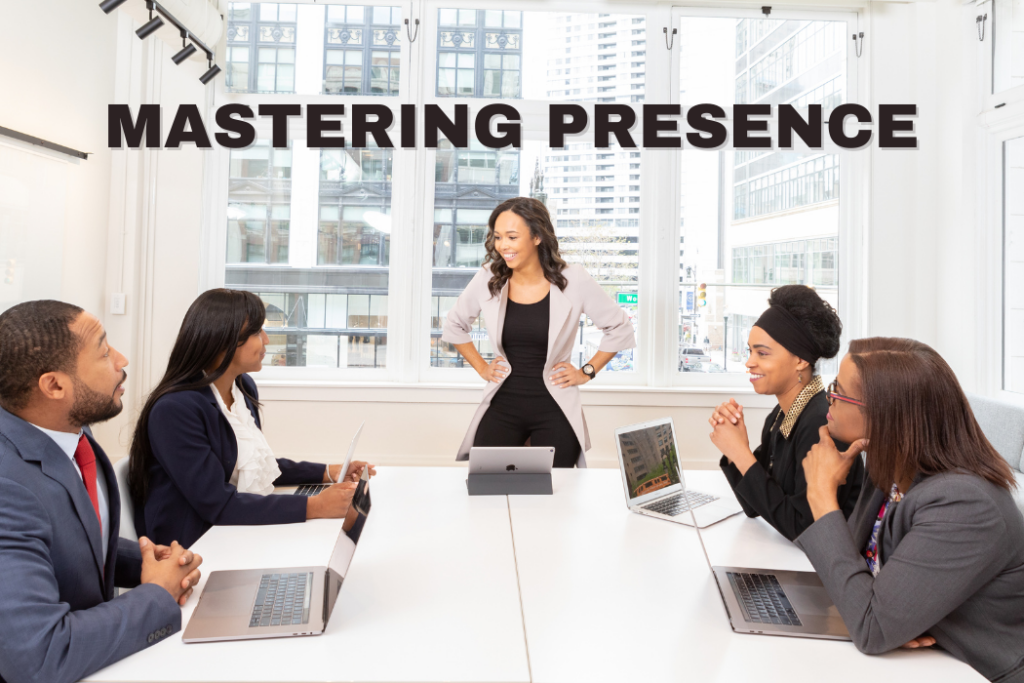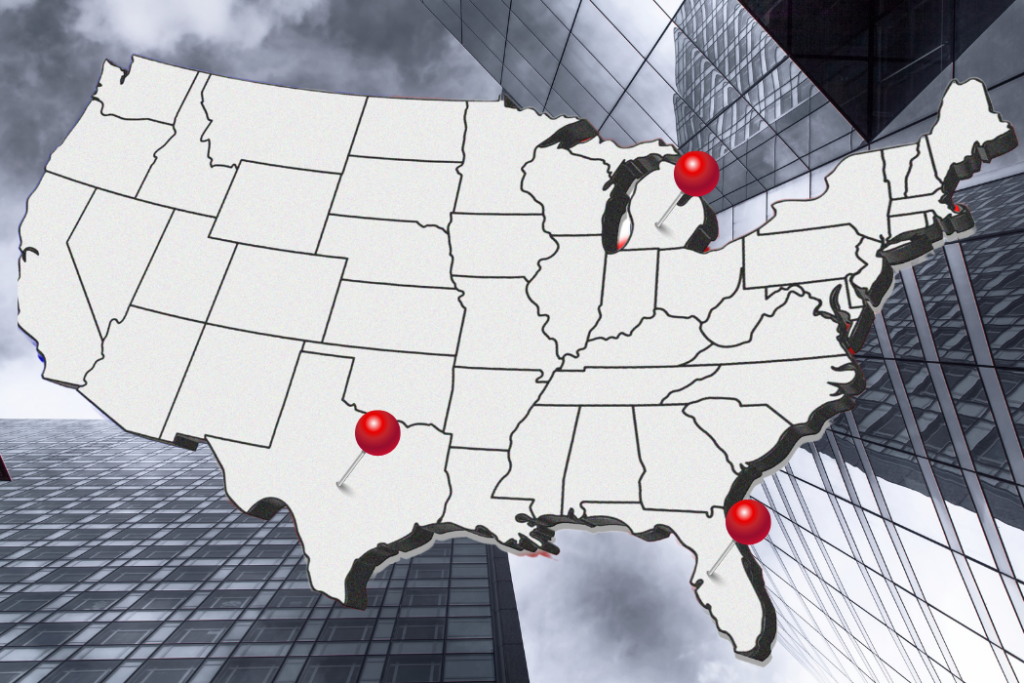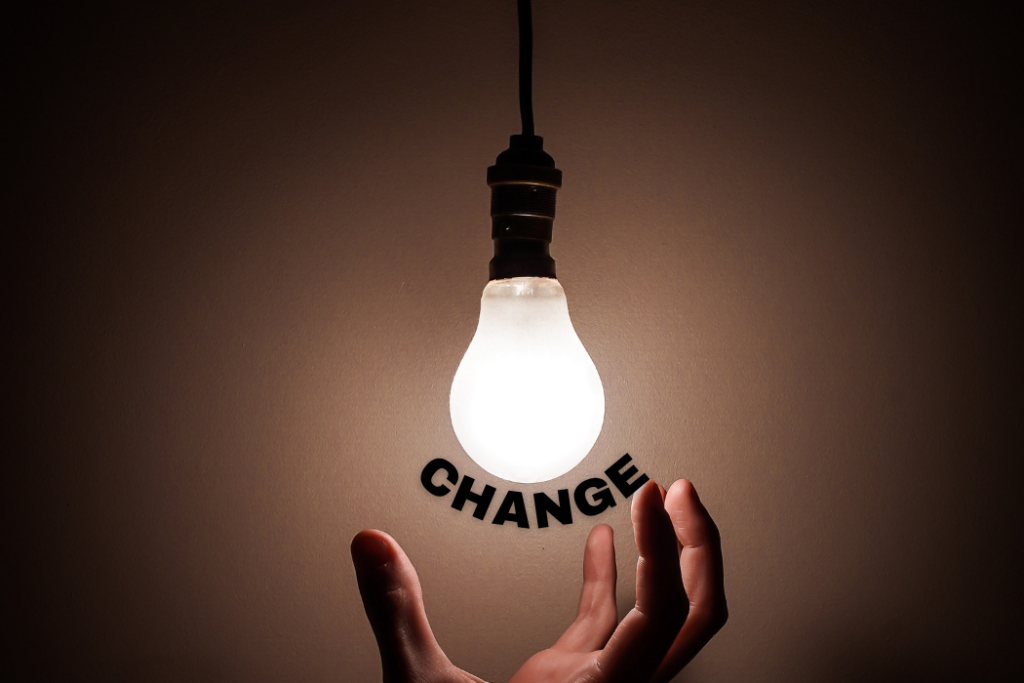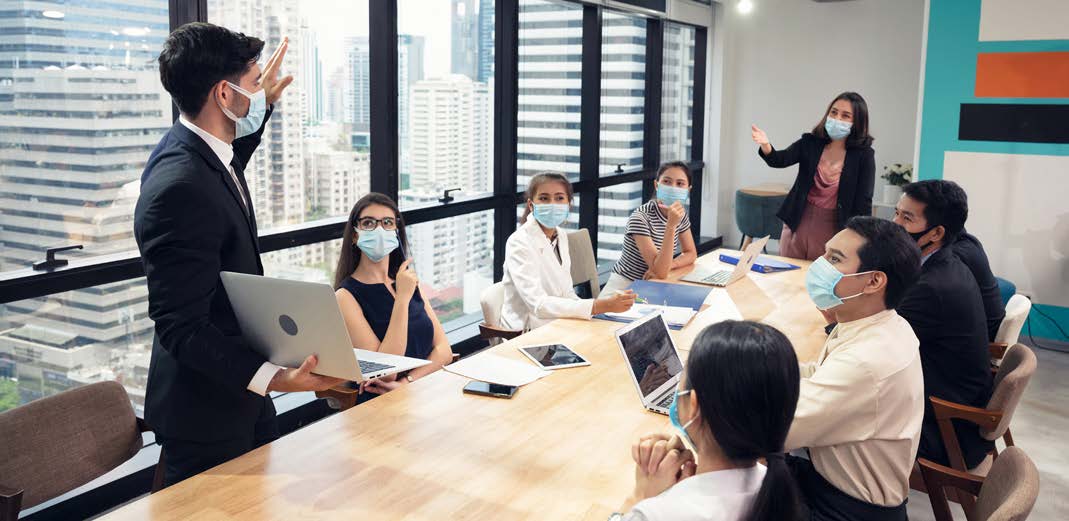
Large corporate meetings and industry events, so much a part of the American business ecosystem, remain on hold, have been postponed, or have been cancelled altogether. when they will happen again is anybody’s guess.
COVID-19’s spikes in many states have prompted pauses and rollbacks to business re-openings and put large gatherings farther into the future. But at the same time, the uncertainty gives event planners and business leaders more time to learn how they can protect and monitor the health of large numbers of people when it is deemed safer to hold such events.
By nature, travel and mass gatherings at conference centers or hotels are high risk for getting sick. The ultra-contagious coronavirus, resulting in a world-wide pandemic that now finds the U.S. as the epicenter, continually reminds us that there is no definitive playbook to combat it. And there is a palpable anxiety and outright fear people have now, and will continue to have, until an effective vaccine is approved.
So, whenever meetings finally resume, planners will need to have a plan in place for protecting their attendees, reducing the risk of infection spread, and providing every stakeholder with the resources they need without fearing for their health. Essentially, health security in the meetings industry needs to be re-established and doing so means applying three main principles from which a sound plan can be formed.
Prevention. There are certain things you must do to prevent illness at a meeting. They include seating configurations that allow for social distancing, sending out communications about all the protocols, encouraging frequent breaks for hand washing, and disinfecting surfaces more frequently in heavy-traffic rooms. Hotel staff should guarantee the cleaning of each meeting room between each meeting, including the cleaning of all chair/table surfaces and spraying the room before the next group arrives. Also, you need the ability to provide PPE or work with a vendor to procure masks and gloves for those who will still be on edge about attending.
Detection. If you’re a forward-thinking company that’s going to hold meetings this fall or in the winter of 2021, you will have to deal with sick attendees. They may have the seasonal flu, a cold, or they may have COVID-19, and you need to plan accordingly. It starts with giving temperature checks at the beginning of each day, temperature checks at general sessions, and temperature checks when people are registering at the conference.
If there are people at the meeting showing flu-like symptoms, it’s a must to find out whether they have COVID-19 and providing access to rapid COVID-19 testing. The testing doesn’t necessarily have to be on site; if not, find a local resource to do the testing.
Response. If some attendees are sick, meeting organizers need to know how they will handle that. It’s advisable to come up with a strong sick-attendee policy that’s enforceable and that can be monitored. That means if one is sick, they don’t attend the meet ing, or if at the meeting they must go back to their room. If testing is positive for COVID, they have to be quarantined. Who did they come into close contact with while at the meeting? Those people, too, will need to be tested.
Remember, communication is extraordinarily important at a large meeting – now more than ever. You may want to have somebody dedicated to that role, putting informative and honest content together. Attendees must be told the facts, such as what the COVID situation is at that time in the U.S. and in the city where the meeting is held. Give people the opportunity to ask questions and address them. Conference planners are not medical experts, so it’s helpful to guide attendees to appropriate websites that can update them on the virus and safety precautions.
What the meetings industry needs to start accepting is that pandemics now happen more frequently—we’ve had two in the first two decades of the 21st century. It’s an industry always vulnerable to illness. Therefore, the industry should adhere to the principles above and develop consistent strategies to reduce that vulnerability, and in future pandemics we won’t have such a decimation as we’ve seen with the industry in the past few months. It will take an industry-wide effort of getting leaders to work together and create standards.




